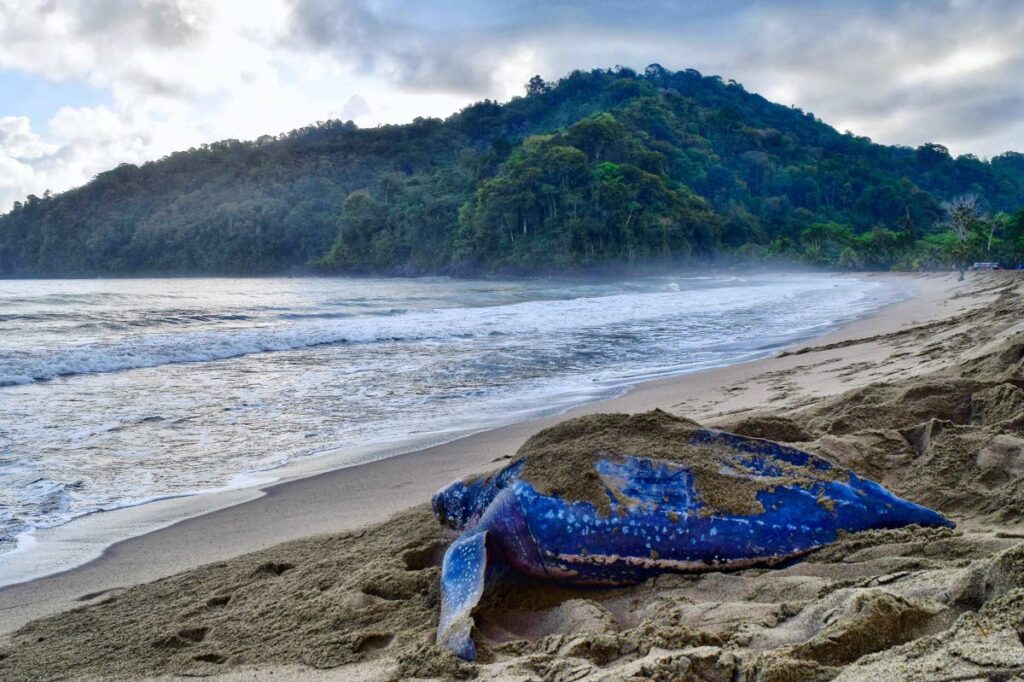The end of the beginning for climate change


“Now this is not the end,” Winston Churchill advised the embattled UK in 1942. “It is not even the beginning of the end. But it is, perhaps, the end of the beginning.” John Elkington, who introduced the concept of the triple bottom line in 1997, thinks that we might be in a position to say the same of 2022 in relation to the sustainability agenda.
We are now well into the Decade of Action where we need to scale up and speed up our effort to reach the milestones we agreed to in 2015: to achieve the sustainable development goals (SDGs) by 2030. We are still far off course.
Climate change
In the next eight years, all types of organisations need to cut their carbon footprints by half! There have been a number of developments in 2021 that signal that important progress has been made, not least of which is widespread acknowledgement of a shared burning platform.
According to Michael Taylor, professor of climate science and dean of the Faculty of Science and Technology at The University of the West Indies (The UWI), Mona campus, 2 degrees Celsius (ºC) is too much for small island developing states (SIDS). Even at 1.5 ºC, the islands of the Caribbean “are only guaranteed half a chance of a liveable future.”

According to the 2018 report by the Inter-governmental Panel on Climate Change, a 1.5 ºC of global warming would cause coral reefs to decline by 70-90 per cent. In 2020, the average surface temperature across land and oceans was 1.19 ºC warmer than the pre-industrial period (1880-1900). “A 2-degree warmer world would lose more than 99 per cent of its corals.” In 2021 the Global Coral Reef Monitoring Network released its first report collating statistics on corals – its findings are as shocking as the accelerated burning of the Amazon rainforest: between 2009 and 2018 the world lost 14 per cent of its corals.
To put this into perspective, consider that, according to Climate Action Tracker, current policies and actions are estimated to result in at least a 2.5 ºC rise by 2100 while the pledges and targets at the time of COP26 in Glasgow are estimated to lead to a 2.1 ºC rise. The impact of any one of these scenarios on Caribbean ecosystems, societies, and economies will be devastating and we must all scale up our collaboration in 2022 to avert this.
According to the Glasgow Pact of COP26, countries are requested to “revisit and strengthen” their targets by the end of 2022 “as necessary to align with the Paris Agreement temperature goal… taking into account different national circumstances.” This is why 2022 will be a critical year for all governments to increase their ambitions; and especially for contributing countries to support less developed countries as promised in 2015.
Loss of biodiversity
In February of 2021 a major study on biodiversity was published – The Economics of Biodiversity: the Dasgupta Review. Our current way of producing value is startlingly inefficient and unsustainable. To maintain our current living standards we need 1.6 Earths. “Estimates show that between 1992 and 2014… the stock of natural capital per person declined by nearly 40 per cent.” This is not only due to market failures but institutional failures. “We lack the institutional arrangements needed to protect global public goods, such as the ocean or the world’s rainforests.”
“Governments almost everywhere exacerbate the problem by paying people more to exploit nature than to protect it, and to prioritise unsustainable economic activities.” Without nature, we cannot solve the climate problem – or generate any other type of value! We are embedded within nature, not external to it.

If 2021 was the year in which most companies accepted the need for urgent climate action, 2022 will, hopefully, be the year in which organisations will realise that nature is integral to our well-being and value creation. It must be the year in which governments ratchet up their commitments to a more ambitious biodiversity framework at the second phase of COP15 – the Conference of the Parties to the Convention on Biological Diversity, planned from April 25-May 8, 2022 in Kunming, China.
Covid19 impacts
Collectively, the most immediate and dramatic developments of 2021 relate to covid19. First is the unprecedented speed and scale of making vaccines available – one year instead of 10. Soon after the vaccines became available in the first half of 2021, three things became clear:
First, people and their well-being have come to the centre of attention. Organisations are challenged in previously unimaginable ways for dealing with their personnel and their families. Extraordinary actions and efforts have already been undertaken and even more needs to be done.
Second, collaboration and cooperation are necessary but very fragile. I have illustrated in an earlier column how easy it is for countries and companies to undermine hard-won progress through actions that are politically expedient and yield short term benefits for some.
Third, the prediction and warning by world leaders, including Dr Tedros Adhanom Ghebreyesus, Director-General of the World Health Organization (WHO) in 2020, came to pass. As the covid19 variant wave-after-wave rattles countries and economies through its many victims, it demonstrates to everyone that there is the only way out: “none of us will be safe until everyone is safe.”
It is quite possible that the disruptions caused by nature in the form of covid19, which themselves were brought on through the interaction between people and nature, have more than the accelerated the digital transformation. The disruptions also exposed fragilities in society and the unethical actions by companies (think, for example, Facebook), but also interrupted business as usual sufficiently for people to realise that humanity's current behaviour is putting even more at risk and thus opened up the possibility for innovation and break-through thinking.
What does it mean for organisations in 2022?
Since we are dealing with climate and nature, all forms of organisations – companies and others – are affected and must play their parts. Among the practical implications are the following:
• First, organisations need to revisit, become conscious of, and reformulate where necessary their purpose – the organisation’s meaningful reason to exist which is the ultimate value the organisation intends to generate for specified stakeholders (ISO 37000). In other words, organisations exist to profit by solving problems of people and planet; and not to generate harm (Prof Colin Mayer, University of Oxford). We need organisations to generate value, to satisfy the needs of the present generation without undermining the ability of future generations to meet their needs.
• Second, organisations need to move from awareness to plans (with budgets) and actions that are responsible and consistent with scientifically determined targets. The time where it was possible to get away with lofty words, pretty pictures about giving back, and an almost random collection of ESG output data points, is over. 2022 will be the year in which regulations and audits will scale up. Greenwashing, purpose-washing, and many forms of fake responsible behaviour will be exposed. One of the key developments in early 2022 will be that the EU taxonomy for sustainable activities defining what constitutes environmentally sustainable economic activities will come into force.
• Third, more organisations will become aware of the power and necessity to not only conserve nature but regenerate it. Net zero was always meant to be phase one, and is not enough. Since our current processes of value generation are, on the whole, severely damaging the ecological systems we depend on, Volans – a London-based change agency – predicts that our dominant social discourse will soon move from the income inequality tension between the one per cent and the 99 per cent to the tension between young and old. The key to resolving this tension will be the achievement of systemic breakthroughs.
The year 2022 will see a lot of consolidation, change and acceleration. Many companies will become aware of their impacts, and the leading ones will accelerate innovation in their business models. We ought to see very changed productive sectors and world of work. It will be disastrous if we do not innovate fast enough.
Dr Axel Kravatzky is managing partner of Syntegra-ESG Inc, vice-chair of ISO/TC309 Governance of organizations, and the co-convenor and editor of ISO 37000 Governance of organizations – Guidance.
Disclaimer: the views presented are those of the author and do not necessarily represent those of any of the organizations he is associated with.
Comments and feedback that further the regional dialogue are welcome at axel.kravatzky@syntegra-esg.com


Comments
"The end of the beginning for climate change"